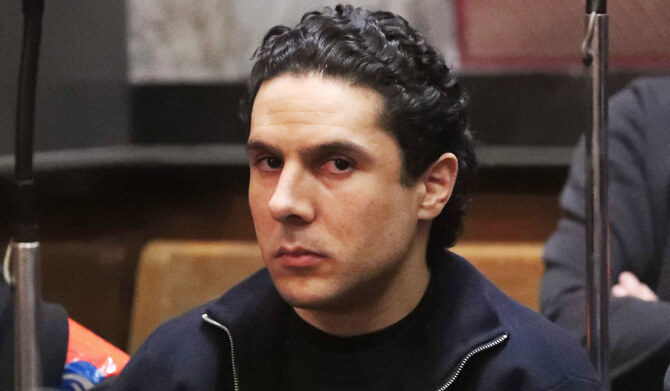PARIS: A French court sentenced a French extremist to life in prison for holding four journalists captive more than a decade ago in the Syrian Arab Republic.
Mehdi Nemmouche, 39, was convicted of having held the French reporters hostage for Daesh from June 2013 to April 2014.
The sentence carries a minimum term of 22 years before he is eligible for parole.
All four journalists during the trial said they clearly recognized Nemmouche’s voice and manner of speech as belonging to a so-called Abu Omar, who terrorized them and made sadistic jokes while they were in captivity.
Nemmouche denied ever being their jailer, only admitting in court that he was a Daesh fighter in Syria.
From the beginning of the trial last month, he has claimed only to have fought against the forces of former President Bashar Assad.
“Yes, I was a terrorist, and I will never apologize for that.”
Nemmouche has said he joined Al-Qaeda’s Syria affiliate and then Daesh — both listed as “terrorists” in the EU — while in Syria.
Nemmouche is already in prison after a Belgian court jailed him for life in 2019 for killing four people at a museum in May 2014, after he had returned from Syria.
Daesh emerged in 2013 in the chaos that followed the outbreak of the Syrian civil war, slowly gaining ground before declaring a so-called caliphate in large parts of Syria and neighboring Iraq.
A US-backed offensive dealt the final blow to that proto-state in 2019.
Daesh abducted and held hostage 25 Western journalists and aid workers in Syria between 2012 and 2014, publicly executing several of them, according to French prosecutors.
Reporters Didier Francois and Edouard Elias, and then Nicolas Henin and Pierre Torres, were abducted 10 days apart while reporting from northern Syria in June 2013.
They were released in April 2014.
Henin alerted the authorities after he saw a facial composite of the presumed perpetrator of the May 2014 Brussels attack that looked very familiar.
Henin, in a magazine article in September 2014, recounted Nemmouche punching him in the face and terrorizing Syrian detainees.
During the trial, he detailed the repeated torture and mock executions he witnessed while in captivity.
=Nemmouche, whose father is unknown, was brought up in the French foster system and became radicalized in prison before going to Syria, say investigators.
The court also handed life sentences to two other extremists tried in absentia because they are presumed dead.
Belgian extremist Oussama Atar, a senior Daesh commander, had already been sentenced to life for the 2015 terror attacks in Paris claimed by Daesh that killed 130 people and the Brussels bombings by the group that took the lives of 32 others in 2016.
The other defendant was French Daesh member Salim Benghalem, accused of having been the jailer-in-chief of the hostages.
The court also handed a 22-year sentence to Frenchman Abdelmalek Tanem, 35, accused of being one of the jailers.
None of the journalists had recognized Tanem, who said he was a bodyguard for several IS leaders and slept in the basement of an eye hospital where they were held hostage, but claimed to have never seen them.
But prosecutors argued he was one of around 10 French-speaking Daesh jailers.
The court also handed a 20-year sentence to Kais Al Abdallah, a 41-year-old Syrian extremist accused of having helped abduct the journalists and of having been deputy in command in the Syrian city of Raqqa, all of which he denies.























